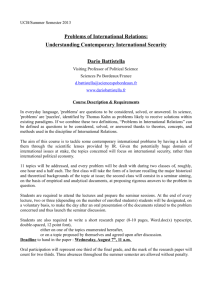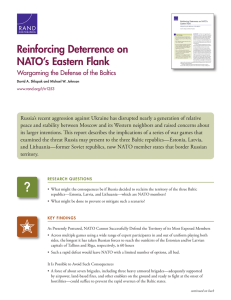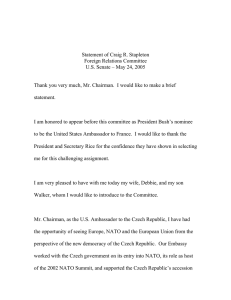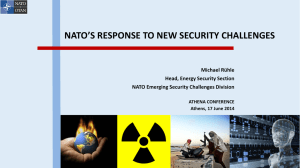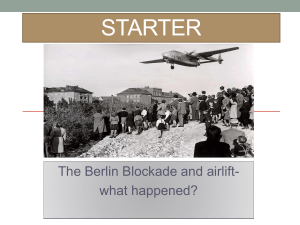International Organizations
advertisement
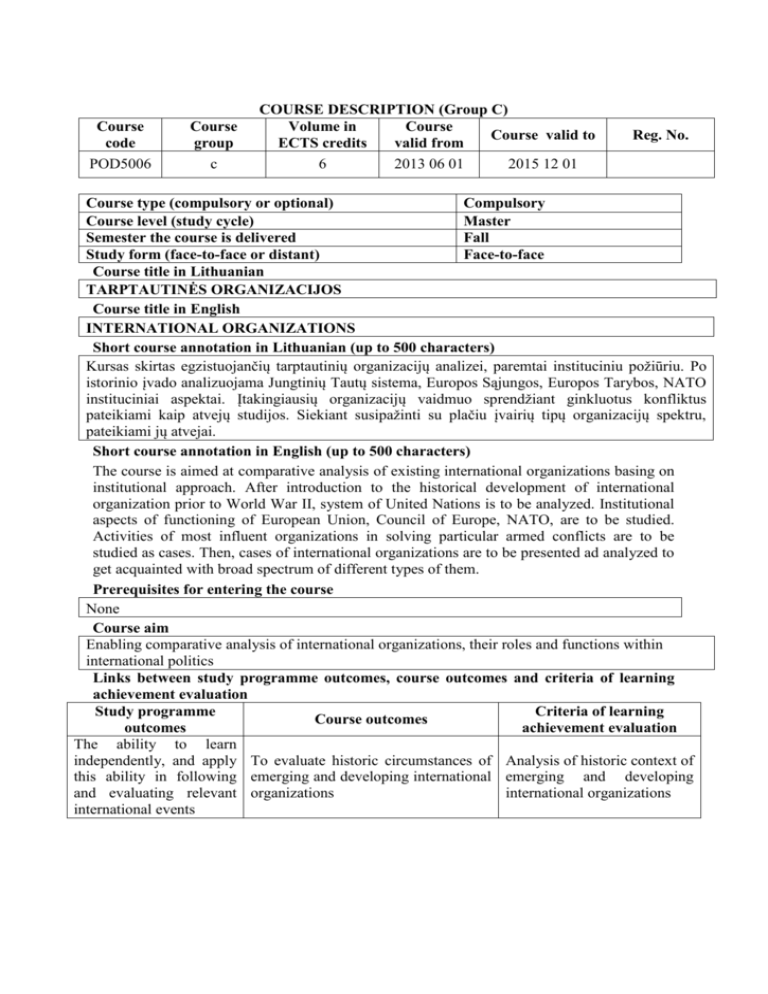
Course code POD5006 Course group c COURSE DESCRIPTION (Group C) Volume in Course Course valid to ECTS credits valid from 6 2013 06 01 2015 12 01 Reg. No. Course type (compulsory or optional) Compulsory Course level (study cycle) Master Semester the course is delivered Fall Study form (face-to-face or distant) Face-to-face Course title in Lithuanian TARPTAUTINĖS ORGANIZACIJOS Course title in English INTERNATIONAL ORGANIZATIONS Short course annotation in Lithuanian (up to 500 characters) Kursas skirtas egzistuojančių tarptautinių organizacijų analizei, paremtai instituciniu požiūriu. Po istorinio įvado analizuojama Jungtinių Tautų sistema, Europos Sąjungos, Europos Tarybos, NATO instituciniai aspektai. Įtakingiausių organizacijų vaidmuo sprendžiant ginkluotus konfliktus pateikiami kaip atvejų studijos. Siekiant susipažinti su plačiu įvairių tipų organizacijų spektru, pateikiami jų atvejai. Short course annotation in English (up to 500 characters) The course is aimed at comparative analysis of existing international organizations basing on institutional approach. After introduction to the historical development of international organization prior to World War II, system of United Nations is to be analyzed. Institutional aspects of functioning of European Union, Council of Europe, NATO, are to be studied. Activities of most influent organizations in solving particular armed conflicts are to be studied as cases. Then, cases of international organizations are to be presented ad analyzed to get acquainted with broad spectrum of different types of them. Prerequisites for entering the course None Course aim Enabling comparative analysis of international organizations, their roles and functions within international politics Links between study programme outcomes, course outcomes and criteria of learning achievement evaluation Study programme Criteria of learning Course outcomes outcomes achievement evaluation The ability to learn independently, and apply To evaluate historic circumstances of Analysis of historic context of this ability in following emerging and developing international emerging and developing and evaluating relevant organizations international organizations international events To be prepared to perform practical work in the field of international relations and diplomacy using gained theoretical background To analyze and compare representation of the states and Exhaustiveness of analysis of institutional influence in particular particular international international organizations, their organization financial basis The ability to independently identify and analyze the main challenges in the practical sphere of international relations and diplomacy To compare status, tasks, powers, and institutional design of international organizations such as European Union, Council of Europe, and NATO To evaluate exceptional position of the United Nations as global organization within international organizations context To evaluate developments and activities of international organizations Ability of comparing regional international organizations Ability to explain universal nature of UN Evaluating developments and activities of international organizations To be prepared to conduct Through particular cases, theoretical analyses of To interpret role and functions of interpreting role and functions significant problems in international organizations in the of international organizations the field of international international politics in the international politics relations and diplomacy Link between course outcomes and content Course outcomes Content (topics) 1.To evaluate historic 1. History of international organizations. League of Nations. circumstances of emerging and developing 2. Growing number of international organizations. international organizations 3. United Nations. United Nations system. 2.To analyze and compare 4. Classification. Types of institutional structure. representation of the states and institutional influence 5. International organizations and problems of global economy: World in particular international 6. Trade Organization, World Bank, International Monetary Fund, organizations, their International Labor Organization. 7. International NGO‘s. financial basis 3.To compare status, tasks, powers, and 8. International organizations and security: NATO, OSCE. institutional design of 9. Activities within field of democracy and human rights: European international organizations Council, UN. such as European Union, 10. European Union. Council of Europe, and NATO 4.To evaluate exceptional position of the United Nations as global 11. United Nations. United Nations system. organization within international organizations context 5.To evaluate 13. International organizations: cooperation and compliance. developments and 14. Representation of Lithuania in international organizations. activities of international organizations 6.To interpret role and functions of international 15. Roles and functions of international organizations: institutional organizations in the mechanisms and domestic politics. international politics Study (teaching and learning) methods Lectures, seminars, individual work Methods of learning achievement assessment Testing, observation of seminar discussion and evaluating Distribution of workload for students (contact and independent work hours) Lectures – 45 h.; Seminars – 15 h.; Independent work (incl. preparation to mid-term and final exams) – 100 h. Total – 160 h. Structure of cumulative score and value of its constituent parts Seminar results – 25 per cent, mid-term exam – 25 percent, written exam – 50 percent of final mark. Recommended reference materials Number of copies in No. Publication Authors of publication and Publishing SelfUniversity Other year title house study library libraries rooms Basic materials Archer C. International 1. 2011 Routledge 1 Organizations Yost D.C. NATO and 2. 2007 1 international organizations Hix S. The Political System of Palgrave 3. 2005 2 the European Union McMillan Ryan S. The United Nations Macmillan 4. 2000 1 and International Politics Press The Council of Europe. Council of 5. 1998 1 Activities and Achievements Europe Supplementary materials Gareis S.B.. The United 1. 2005 1 Nations: an introduction Žalimas D., ŽaltauskaitėŽalimienė S., Petrauskas Z., 2. 2001 Justitia 2 Saladžius J. Tarptautinės organizacijos. Course programme designed by Prof. Liudas Mazylis
